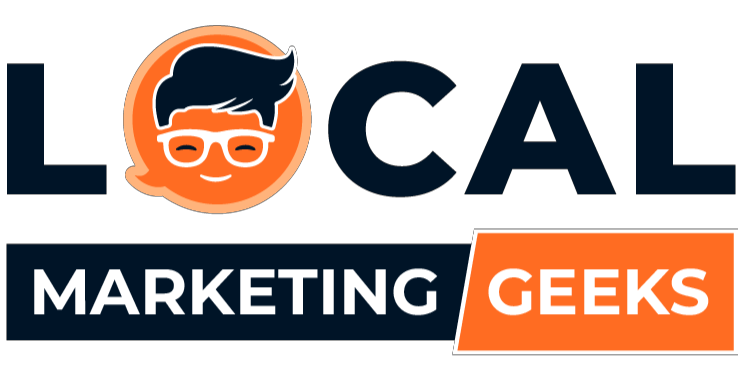If you’re in the industrial automation business, you’ve probably wondered how digital marketing could work for your industry. Let me assure you—it absolutely can. Digital marketing is a powerful way to connect with manufacturers, distributors, and decision-makers in need of your solutions. Whether you’re offering robotics, control systems, or software for automation, the right marketing strategies can help you generate high-quality leads and boost sales.
In the coming years, industrial automation will see massive growth with an increase in manpower and creative and complex roles. Therefore, there is a high chance of you in this field if you follow the right tools and strategy.
In this guide, I’ll show you how to leverage digital marketing for industrial automation effectively. From organic methods like SEO and content marketing to paid campaigns, we’ll cover everything you need to grow your business online.
Digital Marketing for Industrial Automation: A Necessity in Today’s World
Organic Methods to Grow Your Industrial Automation Business
In the world of industrial automation, organic marketing is a great way to build trust, connect with your audience, and grow your business over time without relying on paid ads. Instead of quick fixes, organic strategies focus on creating lasting relationships with potential clients, establishing your business as a trusted authority in your field. The best part? These methods lead to sustainable growth, helping you stand out in the market. Let’s dive into some key strategies that can help you grow your industrial automation business in an authentic and meaningful way.
Website SEO for Digital Marketing for Industrial Automation
When potential clients search for terms like “digital marketing for manufacturers” or “industrial inbound marketing,” they’re looking for solutions your company can offer. SEO ensures that they find you and not your competitors. Optimizing your website for SEO is one of the most effective ways to get noticed by those who need your services. Here’s how you can make sure your site stands out:
How to Optimize Your Website for SEO:
1: Focus on Industry-Specific Keywords
Use keywords like “marketing automation for manufacturing” and “digital marketing for distributors.” Incorporate these naturally into your website’s pages, blogs, and meta descriptions to ensure your content aligns with what potential clients are searching for.
2: Enhance Technical SEO
Ensure your website is fast, mobile-friendly, and secure. Industrial clients expect efficiency, and a seamless website experience shows that your company is professional and reliable.
3: Publish Educational Content
Create blogs, whitepapers, and case studies that address common challenges in automation. For example, “How Automation Reduces Downtime in Manufacturing” can attract visitors interested in learning more about your solutions.
4: Build Backlinks
Partner with industry publications and forums to get your content featured. Backlinks help boost your website’s authority and improve your rankings on search engines.
By implementing these SEO strategies, your website will become easier to find and more engaging for potential clients.

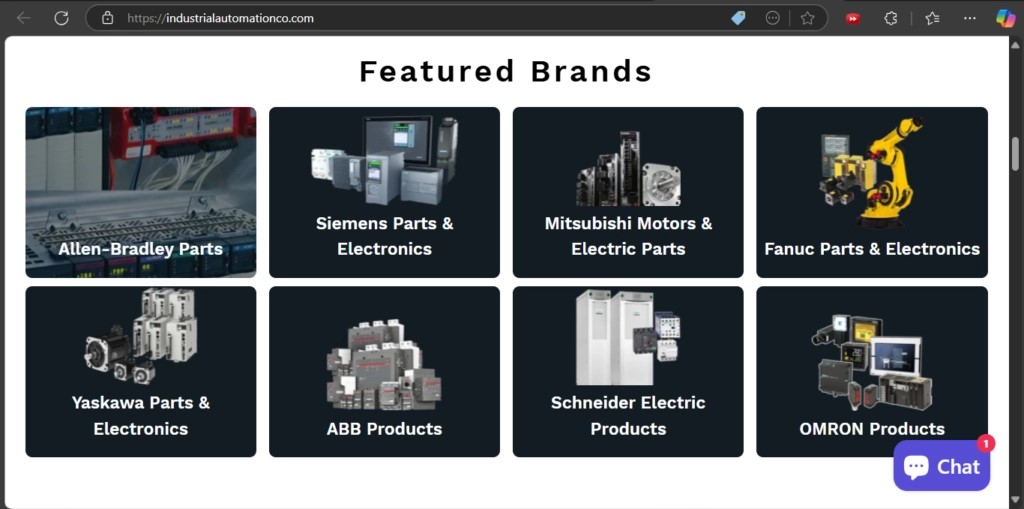
For example, Industrial Automation (https://industrialautomationco.com/) is a top name in American Industry, providing electronics goods and services. Their SEO strategy is attractive and user-friendly. They effectively showcase customer reviews, ratings, and the services they offer, creating a compelling and engaging online presence.
Other examples could be:-
- Rockwell Automation (https://www.rockwellautomation.com/)
- JR Automation (https://www.jrautomation.com/)
- Alpha7 Automation (https://alpha7automation.com/)
Social Media Management in Digital Marketing for Industrial Automation
Social media platforms like Facebook, Instagram, LinkedIn, and Twitter are great for connecting with B2B clients, distributors, and industry professionals, allowing you to share valuable insights and build credibility. On the other hand, using Instagram for stories and videos provides a more personal approach, offering an inside look into your company’s operations and infrastructure. This type of content helps clients understand the potential and growth of your business while humanizing your brand, making it easier for them to connect with you on a deeper level.
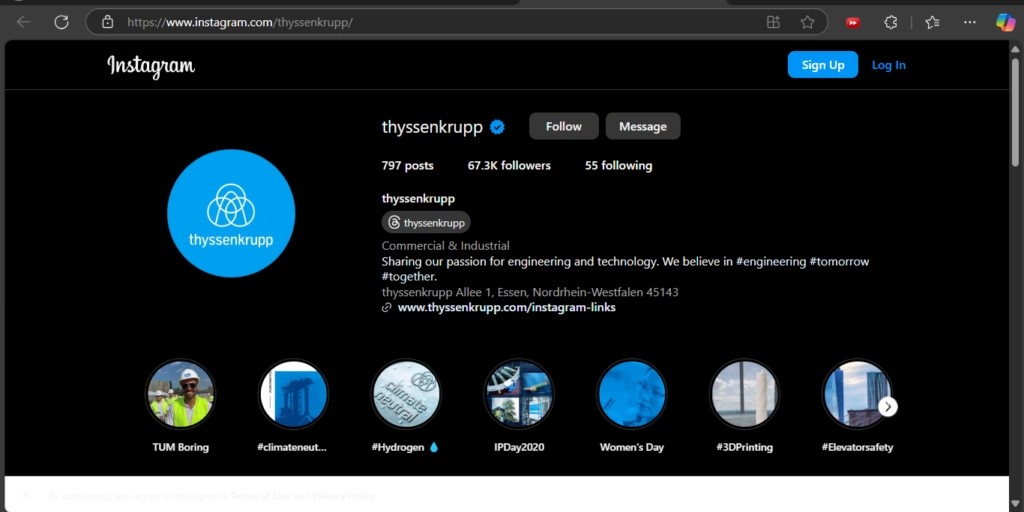
Effective Social Media Strategies for Industrial Automation
1: Share Case Studies
Post-before-and-after stories that showcase how your automation solutions have improved efficiency for clients. Visuals such as graphs and charts can make these stories even more impactful. Tools like Power BI and Tableau are particularly useful for creating these visuals—plus, Tableau is beginner-friendly, so even non-techie users can take advantage of its features.
2: Post Technical Content
Share explainer videos, infographics, or articles that highlight the latest trends in automation technology. Regular blogs and informative posts will keep your clients engaged and position your brand as an authority in the field.
3: Optimize Your Profiles
Ensure your social media bios clearly describe your business and what you offer. Include links to your website or product pages, making it easy for potential customers and clients to learn more about your services directly from your social media handles.
Google My Business for Digital Marketing for Industrial Automation
Even if your business serves a global market, a well-optimized Google Business page is crucial for attracting local distributors and clients. Since Google is often the first place people turn to for information, having an optimized profile ensures your business stands out in local searches and helps you connect with nearby prospects effectively.

Here, you can see the top-rated Google searches for industrial automation companies in New York. Optimized Google My Business profiles often appear at the top of the search engine results page (SERP), making it easier for potential clients to find and connect with your business directly.
How to Optimize Your Google My Business Page:
1: Provide Detailed Information
Make sure to include essential details like your business address, contact information, services offered, and high-quality photos of your manufacturing setup or products. This helps potential clients find everything they need at a glance.
2: Add Client Reviews
Encourage satisfied clients to leave positive reviews about your automation solutions. Positive reviews not only build trust but also help improve your search rankings, making it easier for others to find your business.
3: Use Local Keywords
If your business serves specific regions, include local keywords like “automation solutions in [city]” in your business description. This ensures that your business appears in relevant local searches.
4: Add High-Quality Photos and Videos
Upload clear, professional images of your locations, products, and services. Also, post videos that showcase your facility, teams, or products in action to engage potential clients and demonstrate your capabilities.
Inorganic Methods for Digital Marketing for Industrial Automation
Inorganic marketing methods are powerful tools for generating leads quickly and targeting specific audiences. While organic methods focus on long-term growth through free resources, inorganic strategies can provide faster results and help you reach a broader audience. By investing in paid ads and partnerships, you can amplify your industrial automation business’s visibility and attract qualified prospects more effectively.
PPC Ads for Digital Marketing for Industrial Automation
Pay-per-click (PPC) ads are an effective way to ensure your business appears at the top of search results for relevant terms like “B2B marketing manufacturing” or “industrial digital marketing services.” As shown in the image below, sponsored Google Ads highlight the top industrial automation companies in the USA, helping these businesses stand out and attract more qualified leads. PPC ads offer a targeted approach to reach potential clients when they are actively searching for your services.
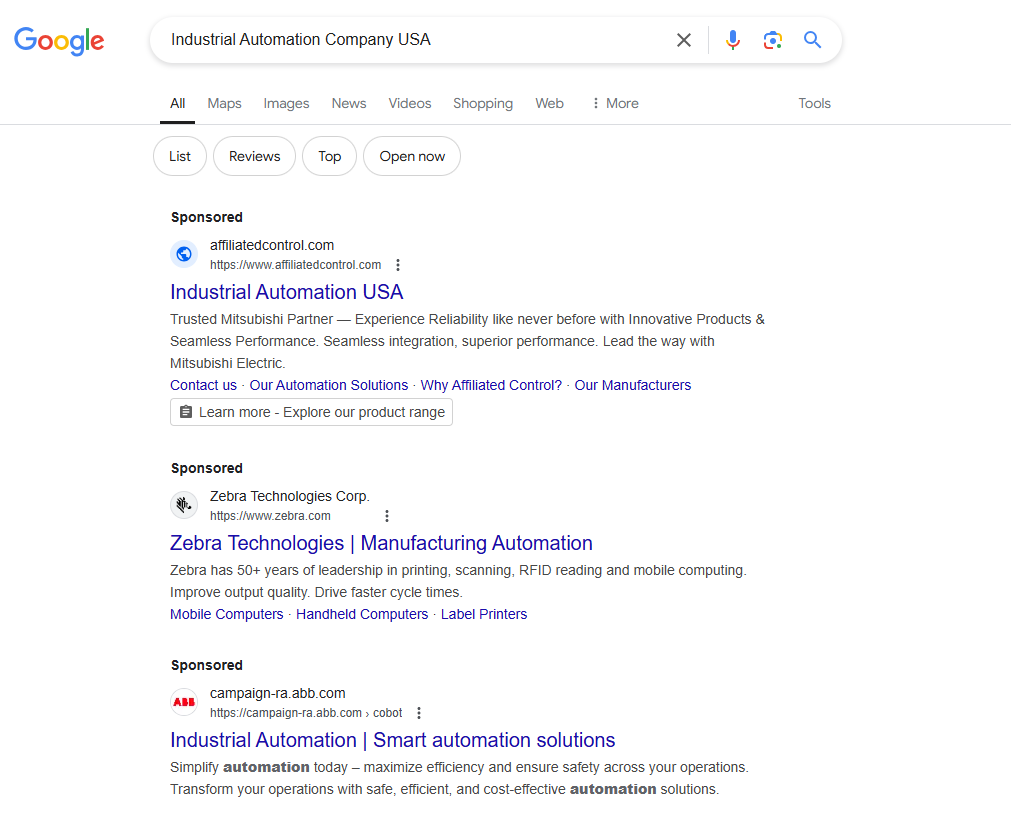
How to Create PPC Ads for Industrial Automation
1: Target High-Intent Keywords
Focus on keywords that show potential buyers are ready to invest, such as “industrial automation solutions,” “robotics for manufacturing,” and “factory automation.” These keywords help attract qualified leads actively seeking automation services.
2: Use Engaging Ad Copy
Highlight your business’s unique benefits, such as “Cut Downtime by 40% with Our Automation Systems.” Pair your ad with a strong call-to-action (CTA), like “Book a Free Demo” or “Get a Quote Now,” to encourage immediate engagement and conversion.
3: Track Performance
Monitor key metrics like clicks, conversions, and ROI to evaluate your ad campaigns. Adjust your budget by optimizing underperforming ads and increasing spending on those that deliver better results.
4: Choose PPC Platforms
- Google Ads: Ideal for both search and display ads, ensuring your business shows up on the most relevant search queries.
- LinkedIn Ads: Perfect for targeting decision-makers and industry professionals in the industrial automation sector.
- YouTube Ads: Great for product demos and explainer videos to give a more in-depth look at your automation solutions.
Social Media Advertising in Digital Marketing for Industrial Automation
Social media advertising is a powerful tool for reaching a wide audience and targeting specific industries in industrial automation. Platforms like LinkedIn, Facebook, and Instagram allow you to showcase your products, case studies, and success stories to a highly relevant audience.
How to Use Social Media Ads Effectively for Industrial Automation
1: Use Visual Content:
Share engaging visuals like videos, product demos, and infographics that demonstrate how your automation technology works in real-world scenarios. These types of content are effective in capturing attention and explaining complex concepts.
2: Promote Case Studies:
Highlight successful projects and partnerships with businesses that have benefited from your automation solutions. Sharing real-world examples builds trust and credibility, helping potential clients see the value in your offerings.
3: Run Lead Generation Campaigns:
Leverage social media platforms’ lead generation tools to collect contact details from prospects interested in learning more about your solutions. This allows you to directly connect with potential clients and nurture them through the sales funnel.
4: Test Different Formats:
Experiment with various ad formats like carousel ads, video ads, and sponsored posts to determine what resonates most with your audience. Testing will help you optimize your campaigns for better results and more targeted engagement.
By strategically using social media ads, your industrial automation business can reach highly targeted prospects, increase visibility, and foster higher engagement within the industry.
Pit and Quarry Magazine, a prominent publication in the multi-billion-dollar mining industry, is headquartered in Cleveland, USA. It is a leading source of information, offering equipment and services specifically for the crushed stone, sand, and gravel sectors.
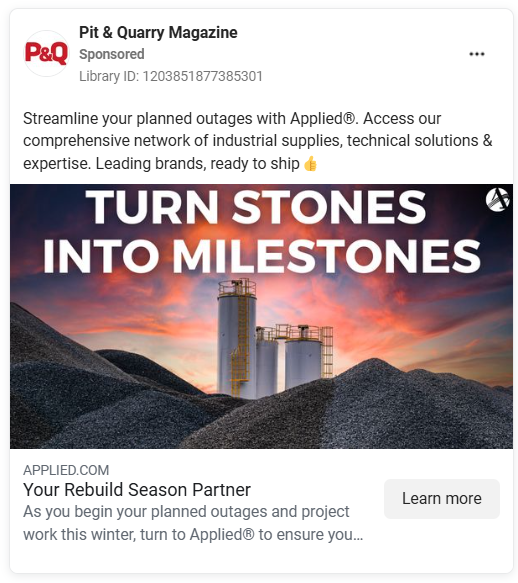

Influencer Marketing for Digital Marketing for Industrial automation
Influencer marketing in the industrial automation space can be highly effective when you partner with industry experts and thought leaders. These influencers can help enhance your credibility, build trust with potential clients, and expand your reach to a wider audience.
How to Use Influencer Marketing:
1: Collaborate with Technical Experts:
Partner with influencers who specialize in manufacturing, industrial automation, or related fields. Their expertise can help establish your brand as a leader in the industry and provide valuable insights to your target audience.
2: Host Webinars or Panels:
Invite influencers to participate in webinars or panel discussions on industry challenges and innovations. These events offer a platform for influencers to discuss how your automation solutions can address key problems, further engaging potential clients.
3: Measure Results:
Track the leads, website traffic, and engagement generated through these influencer collaborations. Monitoring these metrics will allow you to evaluate the effectiveness of your campaigns and adjust strategies as needed to maximize impact.
By leveraging influencer marketing, your industrial automation business can build credibility, expand your network, and increase brand awareness in the industry.
Answering most asked question for the industry:
1: Can You Automate Digital Marketing?
Yes, automation tools like email workflows, social media schedulers, and marketing platforms can streamline your digital marketing efforts. This not only saves time but also improves efficiency, allowing you to focus on more strategic tasks.
2: What Are the 4 Types of Automation?
The four main types of automation used in industrial sectors include:
- Fixed Automation: Best for high-volume, repetitive tasks.
- Programmable Automation: Allows for flexibility, often used in batch production.
- Flexible Automation: Used in scenarios where changes in production are frequent.
- Integrated Automation: Combines various systems for seamless operations.
3: Which Industries Use Automation the Most?
Industries such as manufacturing, food processing, electronics, and pharmaceuticals are among the top users of automation. These sectors rely on automation to increase efficiency, reduce errors, and enhance production speeds.
4: Will Automation Reduce Jobs and Workers?
While industrial automation can replace repetitive and manual tasks, it opens up opportunities for more specialized roles in areas like robotics, AI programming, and system maintenance. These new roles tend to be less physically demanding and often more creative and complex.
5: How to Use AI to Market Automation?
AI can automate marketing efforts by predicting customer behavior, personalizing content, and managing campaigns. For instance, AI can recommend products based on browsing history and send follow-up emails to nurture leads, making marketing efforts more targeted and efficient.
6: What Are Some Common Automation Tools and Technologies?
Common tools and technologies include robots, sensors, conveyor belts, and computer systems. Additionally, AI and the Internet of Things (IoT), along with machine learning algorithms and data analytics, are increasingly used to optimize industrial automation processes.
Conclusion – A Bright Future Ahead with Digital Marketing for Industrial Automation
Take my word for it—digital marketing for industrial automation is no longer optional; it’s essential. By combining organic strategies like SEO and social media with paid methods like PPC and influencer marketing, you can establish your company as a trusted authority and attract high-value clients. Moreover, with the boom in technology and so many new tools emerging every day, industrial automation is poised for massive growth in the coming years. And with this expansion, digital marketing strategies for industrial automation are crucial. By following the above-mentioned approach, you can carve out a strong position in the industrial automation industry.
Start implementing these strategies today and watch your business scale new heights!

